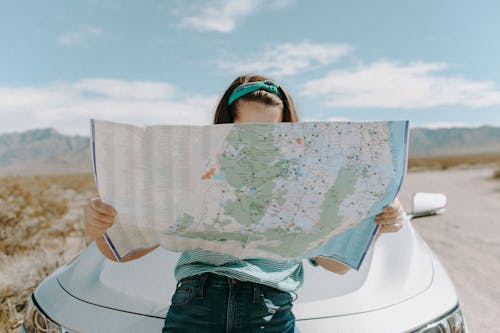Sustainable travel: Tips for your sustainable vacation

The summer is and! Yay! This is the perfect time to take a little vacation again. Since we as outdoor friends protect our environment and our want to make life more sustainable, we have been able to collect some tips on sustainable travel over time. So if you want to pay a little more attention to sustainability on your next trip, we have now prepared the perfect guide for you.
Sustainable travel: Aspects for sustainable holidays
First of all, what is sustainable travel? Sustainable travel does not only refer to environmental protection, but combines many aspects of sustainability.
ecology
That's the point that comes to mind first. The point here is not to use up more resources than can be regrown, or only to use as much of one as is necessary. It's about being in harmony with nature.
economy
It's all about balancing your trip. The economy of travel means supporting the local economy instead of buying from huge international companies like with all inclusive.
social compatibility
This point shows that you are also a kind of ambassador in your culture on holiday and that you would also like to learn something about other cultures yourself. Social compatibility means that different cultures should be encouraged and stands for peaceful interaction with one another.
The seal for sustainable holidays
Anyone who has been trying to live more sustainably and ecologically for a long time will know that some seals have less to do with sustainability and serve more as marketing tools. That's why we have three seals for you here, which you can refer to on your next trip really can trust.
Blue flag: The Blue Flag is awarded to sustainable beaches. Every year, water quality and environmental management checks are carried out on these beaches. If you see the blue flag on your beach or when researching a holiday, that's a good sign for sustainable tourism.
TourCert: TourCert is one of the established seals for sustainable tourism. The award is given to companies that take their responsibility in the area of sustainability particularly seriously. Here, too, the carriers must have their offer checked for environmental friendliness.
viabono: The certificate comes from the Federal Environment Agency and is awarded to accommodation, restaurants and travel service providers. It is regularly examined with regard to water, waste, food and energy/climate.

Foto: Leah Kelley
The planning
Making your trip more sustainable requires (as always) some preparation. The golden rule of travel planning: Attempt to respect the relationship between the distances. The longer the travel time, the longer you should stay and (if that is possible) fulfill other travel wishes in your area. You could also try to learn a little of the language spoken in your desired destination before you set off. Learning something new is always good and broadens your horizons. In addition, you can then (at best) order your own food without any communication problems! Ultimately, this also shows a certain respect for the other culture and your own willingness to learn something from it.
Similar to the seals, you can also pay attention to sustainable tour operators or travel portals. These show you, among other things, sustainable accommodation such as hotels with an ecological claim or organic farms. You can also pay attention to ecocamping sites when camping.
Last but not least, if you still need travel gear, try looking for alternative, more sustainable brands. There are now more and more of these. For example, if you want to relax as much as possible on your next trip, how about a hammock that can plant trees?
Execution
Of course you can also do a lot for the sustainability of your trip on site. Instead of renting a car, you could also use a bike or public transport. That's a promise: there's nothing better than finding your way independently through the local transport network and then arriving at the right place. When you are out in nature you can try something very special: Don't just take your own rubbish with you, but also that of others. This is called cleanup and is done especially on the coast because pollution from plastic waste is particularly high there. For a cleanup you take 1-3 hours and collect plastic waste. At best, you motivate other people and they start helping you clean up.
It's really a great feeling to leave the place you visited a little bit better than when you found it. If you don't have that much time, it's enough to start small: take a little bit of rubbish with you from everywhere and dispose of it. If every traveler integrates this habit into their everyday lives, you can make a difference together.
As a final tip, a point about the local economy. Try to shop at local stores and restaurants that are off the main street or tourist trail, and tip a little if you can. Especially in tourist metropolises, the local population lives from income from the catering trade and there employees are dependent on tips and are happy about any support.
To sum it up: Everything helps! Think about it before your next trip and consider which points you can implement. This not only helps the environment and the local economy, but also offers you a more beautiful, exciting and individual journey!
What trip are you planning next? Write it to us Instagram under the hastag - #holidayhang
By the way: If you want to relax extremely comfortably during your trip, take a look at ours Ultralight hammock an.





